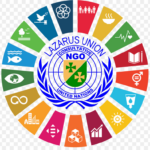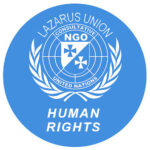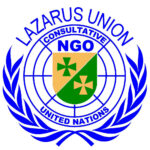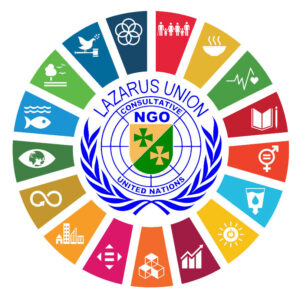HUMAN RIGHTS POLICY
“The 21st Century will be an era of NGOs.”
Kofi Annan, Former UN Secretary General
Respecting human rights is not just an issue for states and governments. Thea Lazarus Union as an NGO in General Consultative Status to the Economic and Social Council (ECOSOC) has an increasing responsibility to incorporate human rights issues into its standards, wherever we operate.
The Lazarus Union is committed to respecting human rights including:
- International Bill of Human Rights
- Universal Declaration of Human Rights
- United Nations Covenants on Human Rights
- European Convention on Human Rights
- Core Labour Standards of the International Labour Organization (ILO)
- OECD Guidelines for Multinational Enterprises
- UN Guiding Principles for Business and Human Rights
- UN Global Compact
Purpose and Scope
This Policy provides the requirements for human rights to be incorporated into related policies, processes, frameworks, and action plans that apply across the Lazarus Union and its Group Members. This Policy is informed by the United Nation’s (UN) Guiding Principles on Business and Human Rights and the Universal Declaration of Human Rights and other related conventions.
This Policy applies to the Lazarus Union, its divisions, its wholly country members and everywhere the Lazarus Union has operational control.
The United Nations define human rights as rights inherent to all human beings, whatever their nationality, place of residence, sex, national or ethnic origin, colour, religion, language, or any other status.
Policy Principles
The Lazarus Union conducts operations in a way that respects the rights and dignity of people, and avoids complicity in human rights abuses, while complying with legal and regulatory requirements which incorporate the protection of human rights. These include:
International and national laws, covering areas such as discrimination, harassment – including sexual harassment, workplace bullying, victimisation, domestic violence and occupational health and safety.
The Lazarus Union will:
Avoid causing or contributing to adverse human rights impacts through the Lazarus Union’s own activities and address such impacts if they occur.
Seek to prevent or mitigate adverse human rights impacts associated with the Lazarus Union’s third-party relationships that are causally linked to the Lazarus Unions operations or services.
The Lazarus Union will reflect its commitment to human rights in relevant policies and procedures, risk assessment processes, due diligence, and training programs as part of its overall approach to Environmental, Social and Governance (ESG) risk .
The Lazarus Union will take a risk-based approach to decide when increased due diligence is required to understand, assess, and address the potential human rights violations associated with all operations and relations the Lazarus Union is engaged with.
Responsibilities
This Policy is approved by the Board of the Lazarus Union.
Human rights risks and issues could arise as a result of any of the Lazarus Union’s operations; therefore, the day-to-day responsibility for management of human rights resides within each commanding officer in all individual division areas. This includes implementing processes and controls to ensure compliance with the requirements of this Policy relevant to their operations.
The Board of the Lazarus Union is responsible for review and oversight of associated operational risk and regulatory compliance policies.
BOOK TIP:

Human Rights from New York to Cairo: An Introduction to Human Rights and Islamic Counterproposals (GERMAN!)
The study of Islamic human rights declarations has long since ceased to be a topic that exclusively concerns Islamic scholars, political scientists or lawyers. The topicality of the question of the compatibility of Islam and human rights is obvious in view of current events and represents a central political challenge of our time. Different cultures, traditions, politics – and not least religion – have an impact on the judgement of what human rights actually are. Today, the issue is the subject of intense debate about the justification, rationale and content of human rights, both between the Western and Islamic worlds and within the Muslim faith community. In this book, the history and origins of human rights are presented, and the main human rights declarations, of both Western and Islamic origin, are analysed in terms of their similarities and differences.





